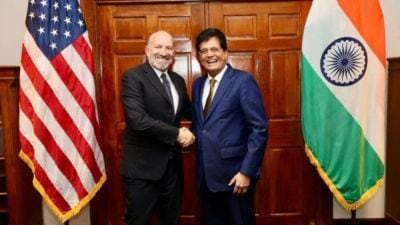Telenor walks boldly into India, buys Unitech arm stake for $1.1 bn
Norwegian telecoms group Telenor announced a bold move to enter the Indian mobile market through a $1.1 billion deal financed by a rights issue...

Norwegian telecoms group Telenor announced a bold move to enter the Indian mobile market through a $1.1 billion deal financed by a rights issue, sending its shares down sharply on Wednesday.
Telenor, already the second-largest foreign operator in Asia after Vodafone, also reported third-quarter core profit slightly below forecast and affirmed its 2008 financial targets. The company said it would buy 60 percent of Indian Unitech Wireless and fund it through a rights issue of about 12 billion Norwegian crowns ($1.74 billion) in the first quarter of 2009. Unitech Wireless has licenses in all 22 mobile regions in India — the world’s second largest mobile market after China.
Analysts said the price was too high and timing wrong, and Telenor shares tumbled 15.4 percent to 38.00 crowns by 1042 GMT, while the DJ Stoxx Telecoms Index rose 5.9 per cent. Shares in Unitech Ltd, the parent company of Unitech Wireless and India’s second-largest listed real estate firm, rose as much as 10 percent in the day. “They are buying a company that does not have (operations). It is madness,” analyst Martin Hoff at Arctic Securities said.
Analyst Arild Nysaether at Fondsfinans said Telenor now has to raise money at “extremely unfavourable conditions”. Chief executive Jan Fredrik Baksaas said that in India Telenor could “replicate its experience” from Pakistan — where it became second largest in terms of market share in four years. Telenor also has operations in Bangladesh, Thailand, Malaysia as well as across Eastern Europe and its home Nordic markets. Telenor said that it was “solid enough” to handle a negative cashflow from India at the start of its operation.
Telenor expects to close the deal by the end of 2008 and that it would break even on EBITDA (earnings before interest, tax, depreciation and amortisation) within three years of starting operations, which will require $2 billion in capex.



- 01
- 02
- 03
- 04
- 05




























